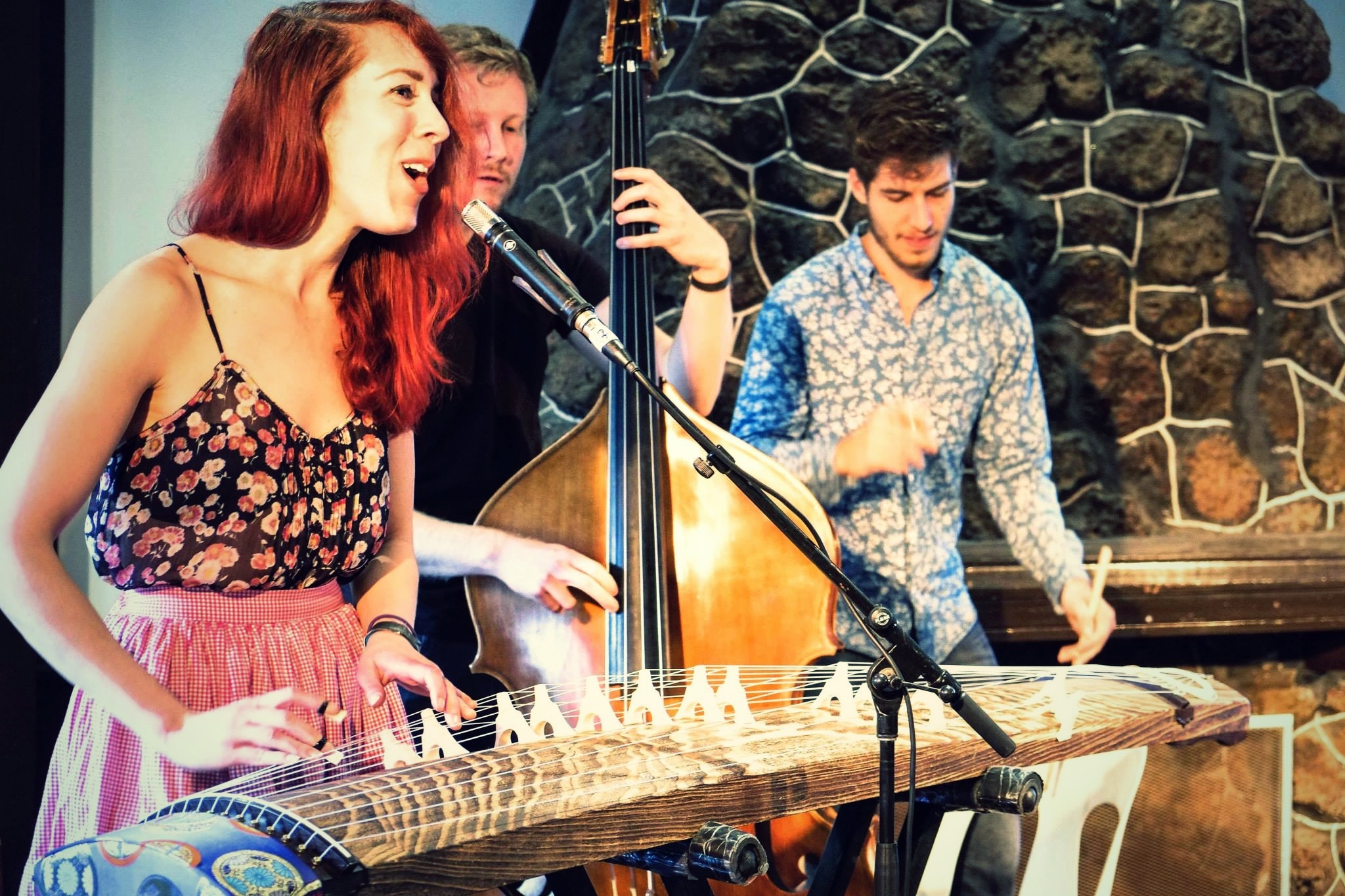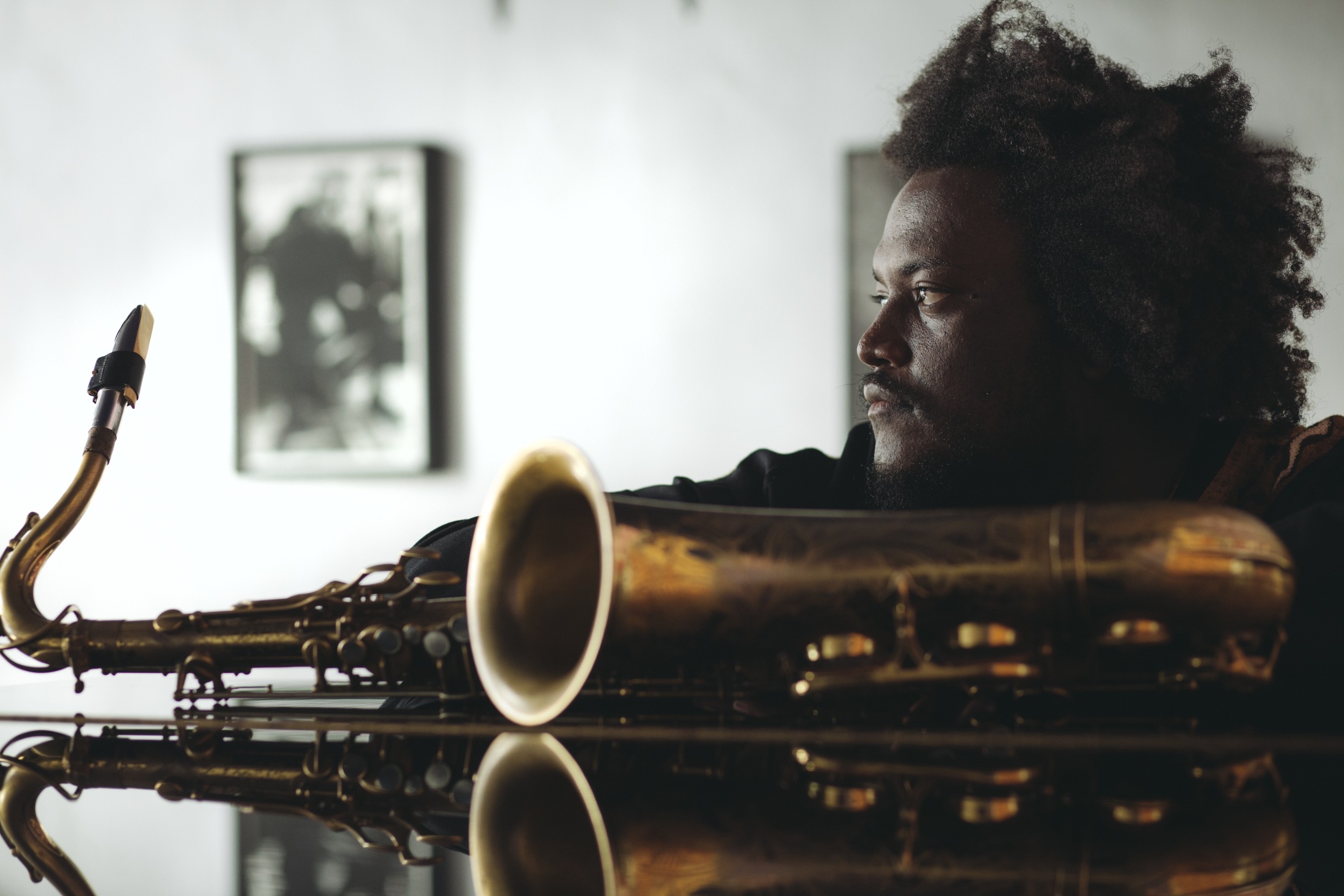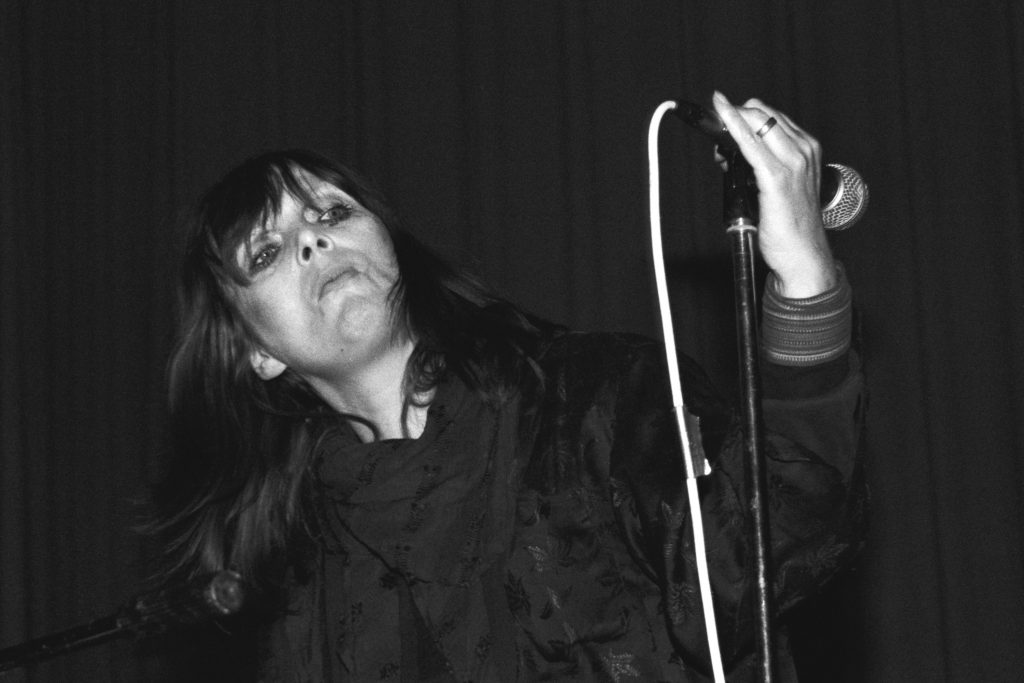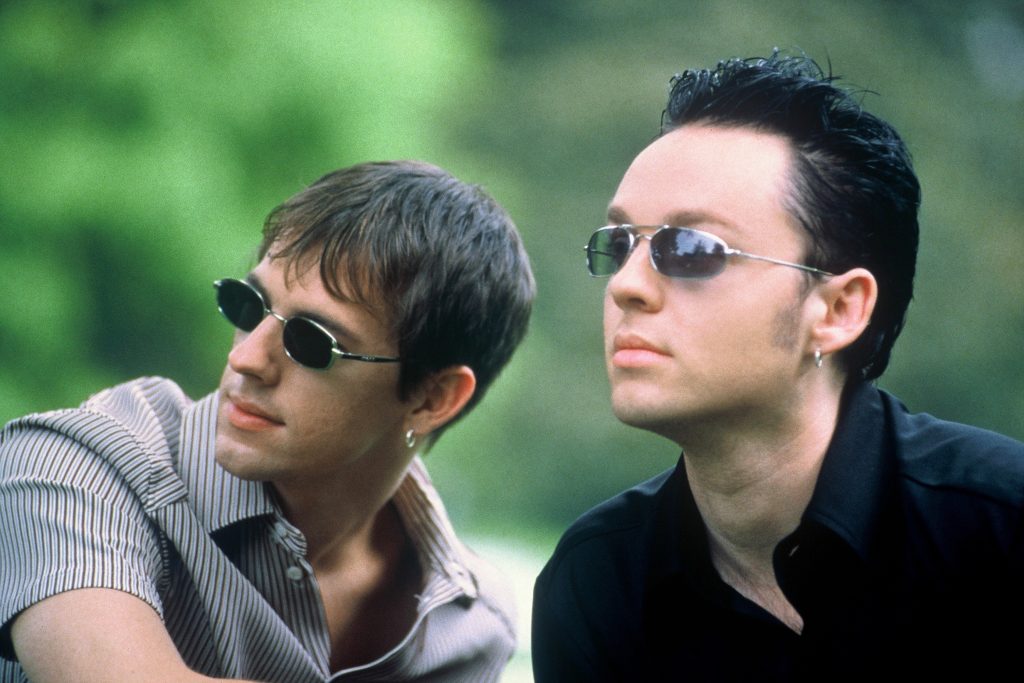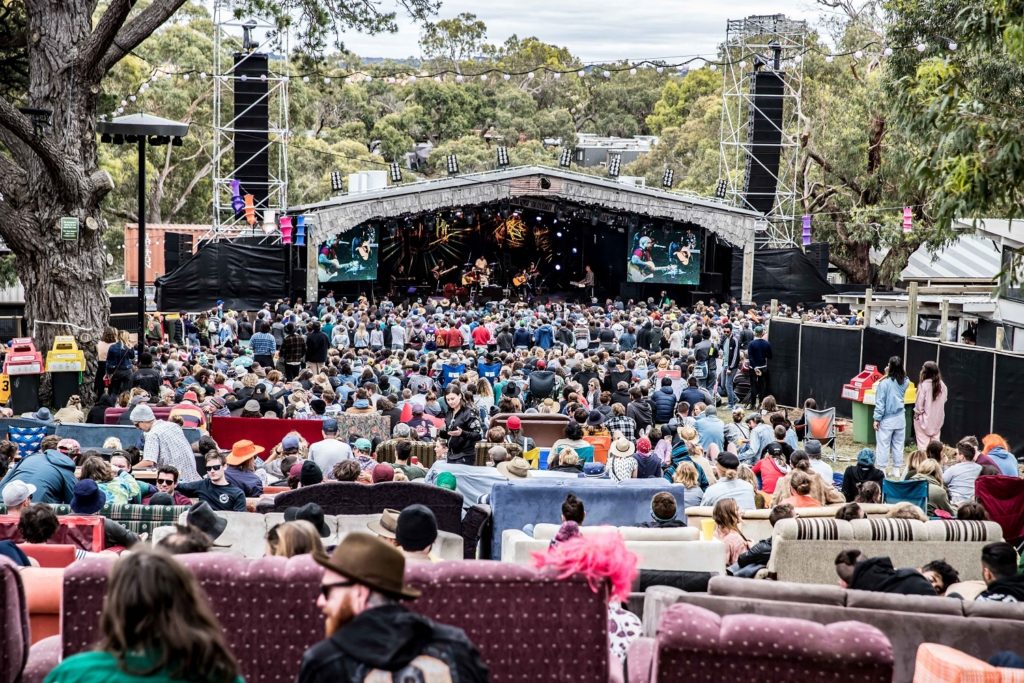“It was the very first time I ever lost my voice,” she laughs. “I’m in a position that many other independent artists are in, where I’m doing a lot of the business side of my profession as well. So I’ve been burning the candle at both ends, to be honest, leading up to this tour. In Asia we have people who take care of the whole hard thing, but most English-speaking countries I do it, and that’s probably part of why I lost my voice. Part of the reason as well is that I had a two-set gig in a loud venue last Saturday night, and that’s what blasted it out. I gave it my all. I had a great time, but turns out that was all there was, there was nothing left afterwards. I got home and muttered some things in baritone, and woke up totally silent.”
Stuart is a native Torontonian, but as a youngster she spent a year in rural Japan. Following the lead of her mother – who’s considered a master of the instrument – Stuart is renowned for playing the koto. The traditional Japanese instrument is a huge and beautiful stringed device, the length of an average person and shaped like the tooth of a mythical shark.
“The koto is tuned to a scale, as opposed to a guitar where if you strum the strings without putting your fingers down anywhere, it doesn’t really sound like anything in particular,” Stuart says. “No matter how you strum it, the koto will sound good. But there aren’t that many koto players around, and there’s no one writing original music for koto in a non-traditional style. There is a kind of wonderment, this magic sound to it – I don’t know how better to explain it. The koto has a kind of mystery about it, and it inspires me in a different way than playing the guitar does.”
In the lead up to her new album, The Passage, Stuart is undertaking a comprehensive tour of Australia. It’s a lifestyle she has always been drawn to, and one that directly translates back home, once she finally settles down and returns to the serious business of being an undefeated champion of Boggle (and yes, she is open to challengers).
“I’m a travelling soul and grew up in a travelling family. I mean, we weren’t nomadic or gypsy in any way, [but] to be honest, when I’m in one place for too long I start to feel stagnant. It’s not that Toronto lacks creative and exciting things; it’s more that you start looking at them in the same way.
“When you’re travelling, your eyes are opened a little wider. I think a little of that goes away when you’re living in a place for a long time. So when you do travel, that sparks up again, and I always find when I get back from travelling I enjoy home more. I’ll notice more things about it. So I do love being on the road. I love seeing new things, meeting new people.”
BY ADAM NORRIS
